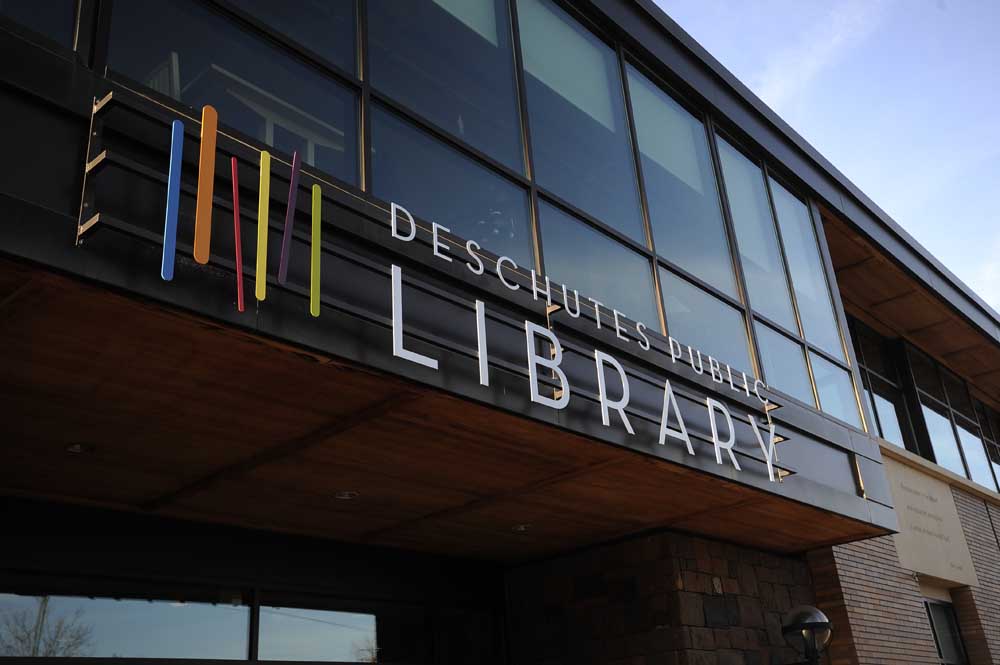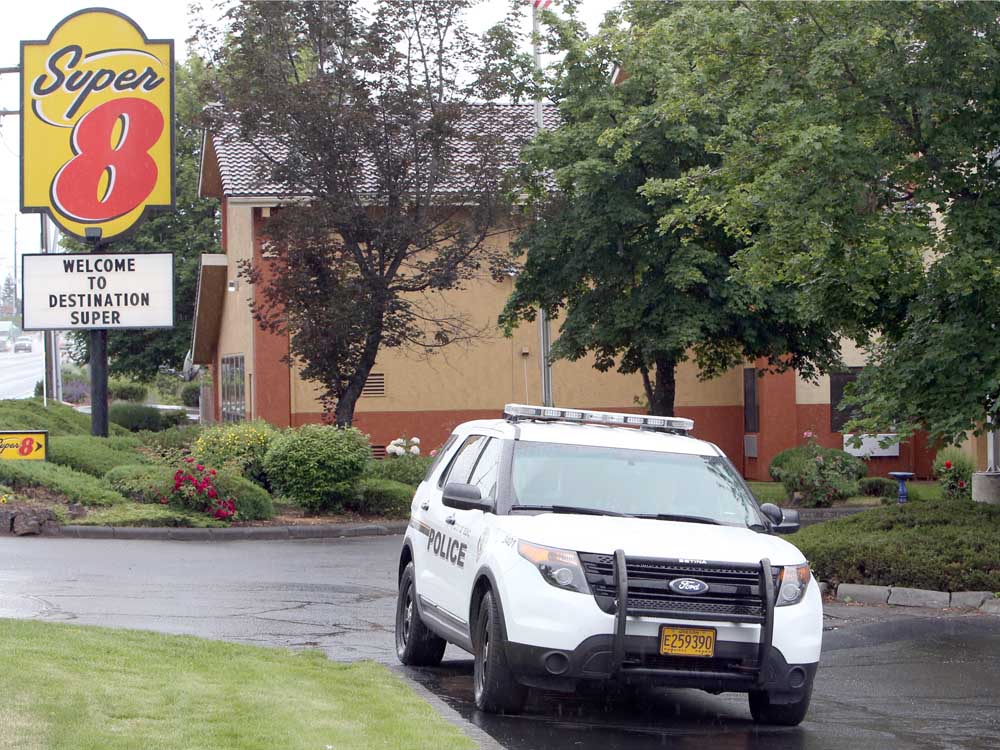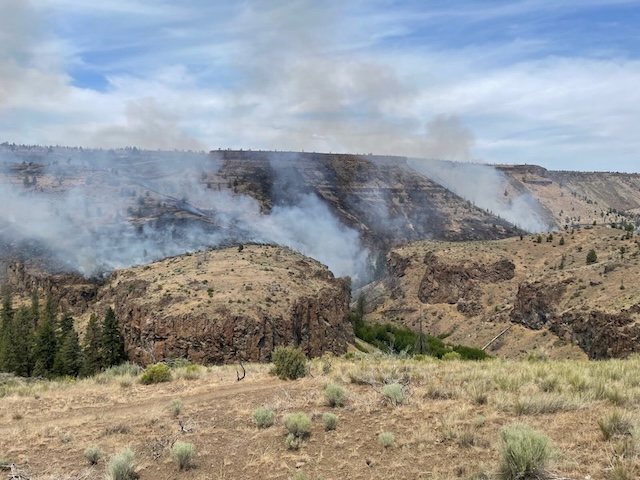New Bend library clears latest hurdle to move forward
Published 4:45 pm Tuesday, March 1, 2022

- The front entrance of the Downtown Bend Public Library.
Despite some members having personal reservations about the location of the new central branch of the Deschutes Public Library System, the Bend Planning Commission decided to recommend code changes that allow the project to move forward.
The code changes, which were reviewed by the commission on Monday, would allow the location of the yet-unbuilt new public library to be annexed into the city despite not meeting acreage requirements. The new central library is planned to be built in north Bend off U.S. Highway 20, which is inside of the urban growth boundary but outside the city limits.
In 2020, Deschutes County voters approved a $195 million bond measure to finance a 100,000-square-foot library and make major upgrades to other libraries in the county. Multiple proponents of the library design spoke in favor of the changes to let the project move forward on Monday, but several also spoke out against the changes, arguing that giving the library an exception to the rules was undermining the land use system.
“Just because there was a vote in favor of a bond measure doesn’t mean there was a vote in favor of disregarding the land use process by which we make decisions,” said Paul Dewey, the former executive director of the land use nonprofit Central Oregon LandWatch, at the meeting Monday.
Currently, city code requires that a property owner or multiple owners must collectively annex 40 acres at a time. But the Deschutes Public Library District owns just under 13 acres.
Without an exception to the rule, the only other way the library property could be annexed into city limits is if the city were to do an area plan for the entire O B Riley Road area that is currently in the growth boundary but outside of city limits, said Karen Swenson, a planner for the city. But an area plan for this part of town is not on the docket to be done anytime soon, she said.
Proponents compare the exception to what Bend La Pine School District was able to do in order to build North Star Elementary School in the same area of town. Proponents also mentioned that voters have already spoken when it comes to the central library concept.
“The citizens voted for this particular project, and I think trying to change that vote at this point is not responsible,” said Bunny Thompson, a library board member.
But opponents to the central library’s location argue allowing an exception is overall bad planning. Some argued building the library in this location would bring more traffic to an area already suffering congestion issues.
Others, like Central Oregon LandWatch, argued it conflicts with the council’s goal to reduce auto dependency and carbon emissions in the city.
“The subject property was not voted on by Deschutes County voters to be the site of a new public library, let alone one that would require extensive amendments to the Bend Comprehensive Plan and Bend Development Code,” Rory Isbell, an attorney with LandWatch, wrote in a letter to the commission. “Siting a library public facility at this location would be contrary to City and State policies to reduce reliance on the automobile and mitigate climate change.”
This is not the first time residents and groups have spoken out against the central library location. Last summer, several residents, including Bend city Councilor Anthony Broadman, Bend Park & Recreation District board member Ariel Mendez and newly-elected library board member Anne Ness, spoke against the plan, arguing that the library district should invest more resources in improving regional, walkable locations rather than one that encourages vehicle travel.
While some planning commissioners agreed that they also supported investing more in multiple, regional libraries that are easily accessible to people on bike and foot, the commission ultimately decided they weren’t tasked with deciding the merits of the project, but rather to address whether the city’s code should allow for an exception for public facilities like a library.
“I prefer the regional library approach, but that didn’t go before a vote,” said planning commission Chair Scott Winters. “I feel like delaying it is a weird way to protest.”
The commission voted 4-1 to recommend the changes to the Bend City Council. Commissioner Jeff Payne was the sole no vote, though did not offer a reason why during the meeting.
If the Bend City Council passes the code changes, the library hopes to submit a site-plan application this spring and begin construction by the winter of 2023, according to Library Director Todd Dunkelberg.






